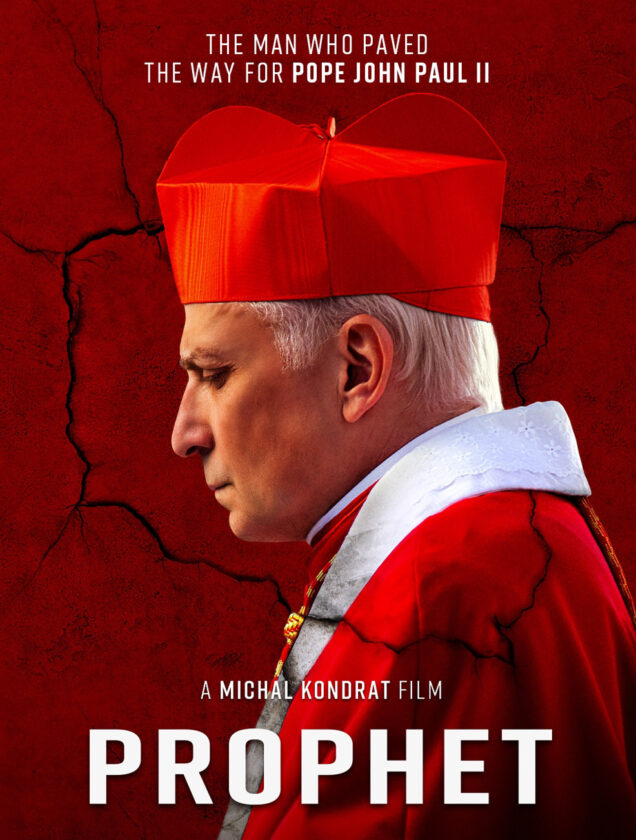accompanied on her trip by Marion Wojciechowski who was a Polish Cavalry Commander in the war. He lived and raised his family in Toledo. Ms. Kaptur recounted her trip with many stories and more than a few times had the audience laughing with some of her more amusing recounts of her trip. When an audience member asked her what a typical day was like for her as a Congresswoman, Ms. Kaptur pulled out her blackberry and read from it the lengthy schedule of a typical day for her starting early in the morning and ending well into the evening. After her presentation, Ms. Kaptur was kind enough to answer all questions, talk with many of the people in the audience and pose for pictures with them. PACT would like to thank Marcy Kaptur, and her associate, Dan Foote, Dr. John Klocinski, Susan Rowe, and Patti Skaff for making this presentation possible.
Below is a full account of Marcy Kaptur’s trip to Poland in 2009.
| Congresswoman Marcy Kaptur arrived in Warsaw, Poland Wednesday where she is accompanying former Toledoan and Polish Cavalry Commander Marion Wojciechowski to the land of his birth for commemorative ceremonies marking the September 1, 1939 invasion of Poland by the Nazis.Wojciechowski, who celebrated his 95th birthday this year and lived and raised a family in Toledo, Ohio, now resides in Las Vegas, Nevada.Wojciechowski, a Polish Cavalry Platoon Commander, experienced the invasion of his homeland by the Nazis and then three weeks later, the Soviet Red Army, on the Eastern front. Polish armed forces fought the two powerful enemies alone, with no initial support from Allied troops. Rep. Kaptur hopes to honor all those soldiers who served and sacrificed in the events that would initiate World War II.
At the time of the invasion, Mr. Wojciechowski (then 25), was a platoon commander in the Polish cavalry. He served in the 21st regiment — Pulk Ulanow Nadwislanskich of the Wolhynian Cavalry Brigade. This regiment, assisted by a Polish artillery train to blast enemy tanks, fought courageously at Mokra, a small town near Czestochowa. The Battle of Mokra would later be assessed as a strategic victory for the Polish cavalry against the superior German tanks and air power. Despite the Nazi’s strength, the Polish Calvary inflicted surprisingly heavy losses on the German forces. On September 11, 1939, in a forest near Osuchow, Wojciechowski’s group of Polish cavalrymen and foot soldiers from various regiments continued to fight. Finally, they were encircled by German forces. Out of ammunition and medicine, the situation forced the Polish infantry commander to decide to surrender in order to save the wounded. However, the cavalry commander refused to surrender and suddenly ordered a charge. Mr. Wojciechowski, following the commander’s charge, drew his saber and cut through German infantry ranks. Although he survived, a fellow soldier from his home town of Polaniec thought he saw him shot and reported his death to his mother, who held a funeral mass for Marian. Fortunately, Mr. Wojciechowski survived and went on to fight the Soviets who attacked on September 17, 1939. Later, Mr. Wojciechowski joined the underground resistance, was arrested and tortured by the Gestapo, and sent to Auschwitz. Meanwhile, Wladyslawa Poniecka, a young Polish girl scout and also a member of the underground, was arrested with her entire family in Warsaw, sent to the Gestapo prison Pawiak, and was transported to Ravensbruck, a notorious women’s concentration camp north of Berlin. Polish Christian women there were subjected to pseudo-medical experiments, including sterilization. After the war, Marian and Wladyslawa met in a refugee camp in Germany, married, had a daughter, and came to America in 1950 under the Displaced Persons Act. They were sponsored by Mr. Wojciechowski’s cousins in Toledo, Ohio which became their adopted hometown where they published the polish language newspaper Ameryka-Echo for over seven years. Marian built his career in neighborhood and community development in Toledo and is widely acclaimed for his pioneering work in the restoration of the city’s historic Old West End. It was during this time that the Wojciechowski’s befriended Congresswoman Marcy Kaptur, who attended Saint Ursula Academy with their daughter. Today, Mr. Wojciechowski is revisiting the sites and commemorating the events that transpired 70 years ago in a war that changed the world. The group accompanying Mr. Wojciechowski includes Dr. Roman Rozycki, a physician and the leader of the Polish community in Las Vegas, Craig Wojciechowski, Mr. Wojciechowski’s grandson, with his fiancée Jodi Benjamin, also of Las Vegas and Rep. Kaptur. They will be traveling to various towns in Poland of historical significance, including the Mokra battlefield, the cavalry school at Grudziadz, and Auschwitz. In addition Kaptur will visit the hometowns of her Polish ancestors in the Gniezno region. This unique journey is about history, family and heritage. Marcy Kaptur first travelled to Soviet-dominated Poland, Ukraine, then Czechoslovakia and Hungary as a private citizen with her mother Anastasia Rogowska Kaptur in 1973 and 1975. They travelled by car in search of a family history that had been lost since the early 20th century. Congresswoman Kaptur represents Ohio’s Ninth Congressional district. Now in her fourteenth term, she is the longest serving woman in the U.S. House of Representatives. Of Polish-American heritage and a granddaughter of immigrants, Kaptur knows the price of liberty and the cost of repression. Throughout her life, she has been a steadfast ambassador to Central Europe, a Member of the Polish, Ukrainian, and Russian Caucuses in the U.S. House of Representatives, and the first woman in U.S. history to serve on the powerful House Appropriations Defense Subcommittee. Upon Poland’s independence in 1989, Kaptur passed legislation to establish credit unions in Poland where a successful network has been established. For that effort, she received the highest international award of the World Council of Credit Unions. In addition, Kaptur has been a supporter of development assistance for Poland, passage of the visa waiver for Poland, and Poland’s admission to NATO. Additionally, Kaptur and her brother Stephen established two small private charities, in honor of her parents – the Kaptur Community Fund and the Anastasia Fund – that contribute to humanitarian causes in the United States and throughout the globe. Congresswoman Kaptur authored the legislation that created the World War II Memorial in Washington, D.C., influenced by her family history of military service and the brave men and women who sacrificed life for liberty. “I am honored to accompany this son of Poland and of Toledo as a husband, father, and grandfather; as a learned man and newspaper publisher; as a city housing and development official; and as a living example of an indomitable spirit with a heart of gold who continues to inspire the thousands upon thousands of people whose lives he has touched through his life and continual work,” said Kaptur. “Truly, he is an extraordinary man. And like Generals Kosciusko and Pulaski, who gave themselves to America’s Revolution, Marian Wojciechowski understands that the ideal of liberty knows no geo-political boundaries. It resides deep in the human spirit and requires sacrifice. Marian fully embodies that noble idea and that courageous sacrifice,” the Congresswoman concluded. Congresswoman Kaptur has personally funded her travel; it is not a government expense. More information on Congresswoman Kaptur’s visit to Poland is available at: |


